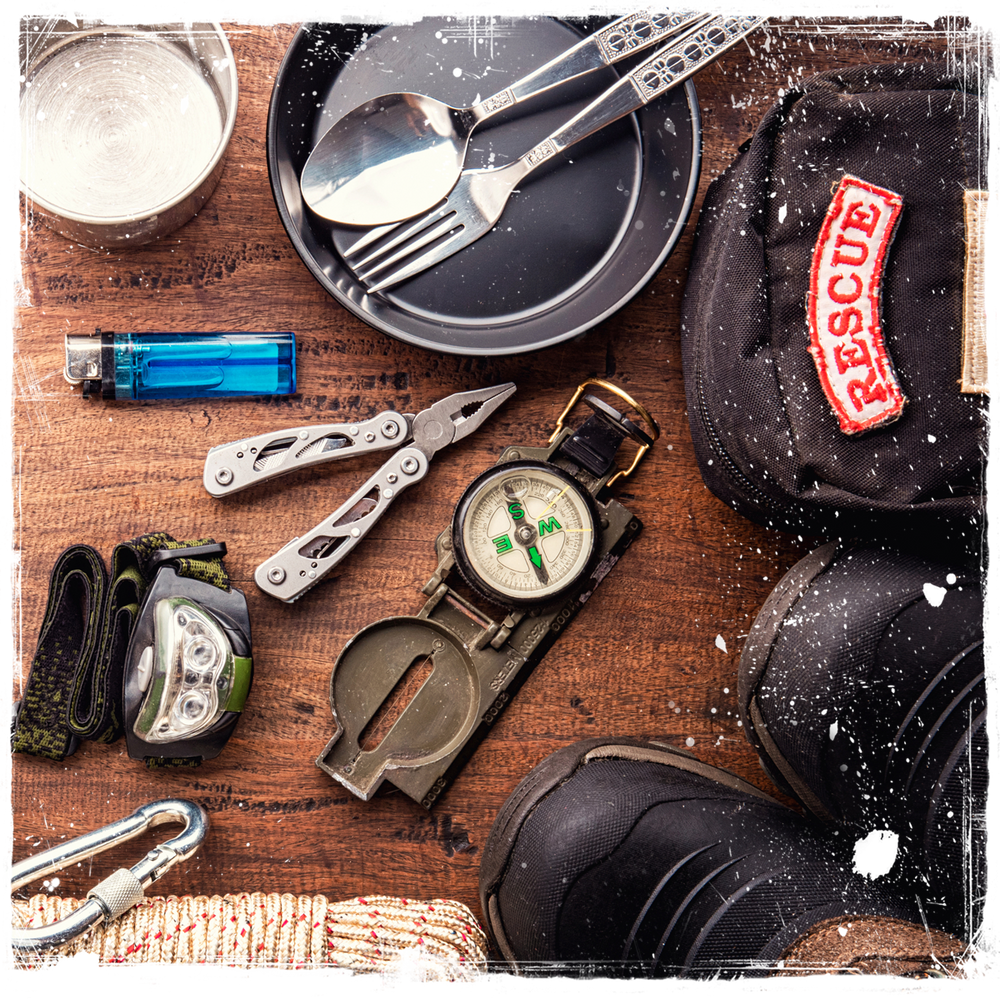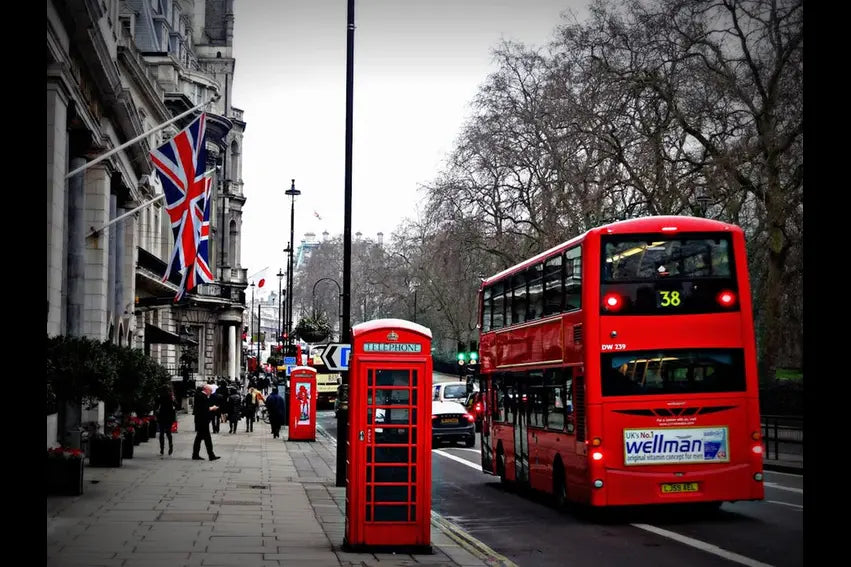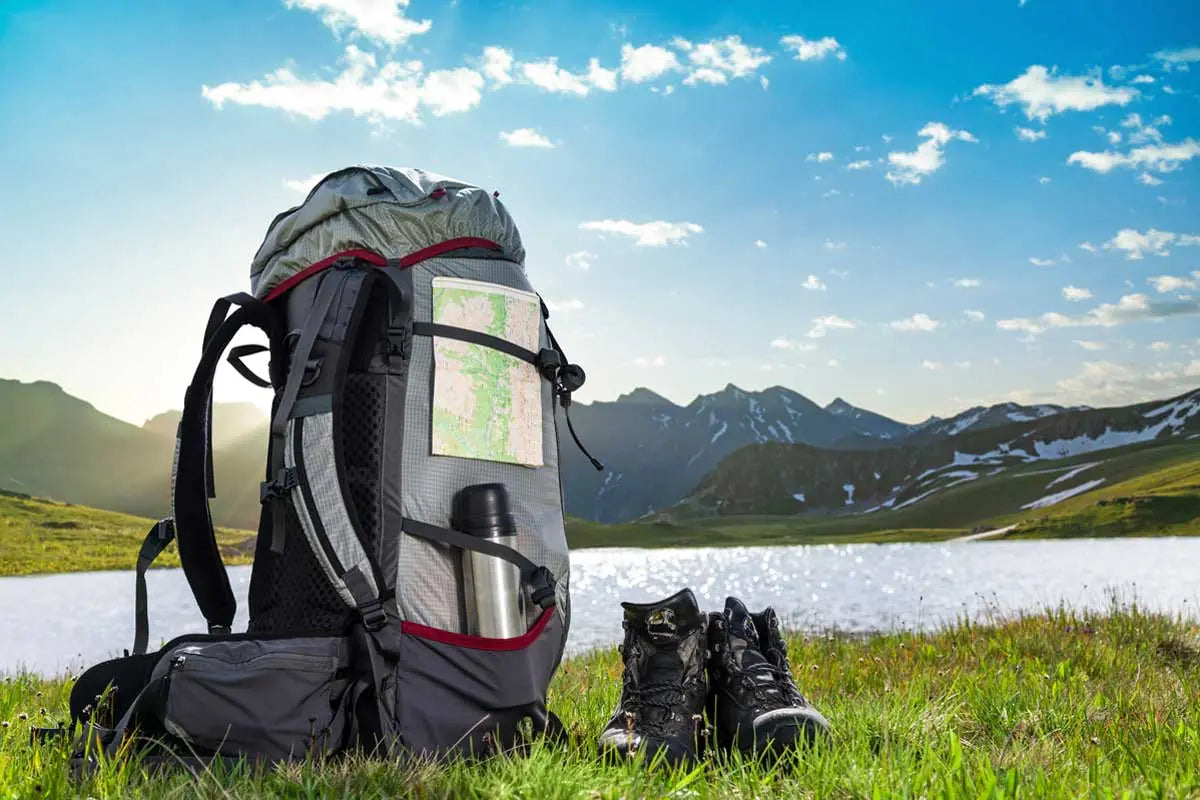In a world filled with uncertainty, preparing for emergencies has become more important than ever. From natural disasters to economic disruptions, having access to cash during a crisis is a critical component of any prepper’s plan. While the UK is a highly digital economy, relying solely on bank cards and digital payments during emergencies can leave you vulnerable. Power outages, banking system failures, or even the inability to access ATMs can happen without warning. So, how much cash should a prepper have, and how can you store it securely? Let’s explore this essential aspect of emergency preparedness.
Why Cash is Essential for Preppers
In the UK, where cashless transactions are becoming the norm, it's easy to overlook the importance of keeping physical money on hand. However, during emergencies, cash can be the difference between getting the supplies you need or going without.
Cash as a Reliable Backup
Digital payment systems rely on infrastructure like electricity, internet, and functional bank networks. But what happens when these systems fail? For instance:
- A power outage could render card machines and ATMs useless.
- Cyberattacks on banks could disrupt access to funds.
- Natural disasters like flooding could cut off entire regions from banking services.
In situations like these, cash allows you to purchase essential goods or services, especially from local vendors who may not have access to working card machines. Having cash ensures you’re not left stranded during the most critical moments.
Peace of Mind in Uncertain Times
Financial preparedness also provides mental peace. Knowing you have an accessible backup for unforeseen events—whether it’s a fuel shortage, a temporary bank freeze, or supply chain disruptions—can help you act decisively.
Pro Tip: While cash is an essential part of your emergency fund, consider diversifying with other forms of financial security, such as barter goods, gold/silver coins, or prepaid debit cards.
How Much Cash Should a Prepper Keep?
There isn’t a one-size-fits-all answer to how much cash you should have. However, preppers often recommend starting with at least two weeks' worth of essential expenses. For UK households, this could include money for food, petrol, and basic supplies.
Factors to Consider When Deciding Your Cash Reserve
- Family Size: A family of five in rural Wales may need more cash than a single individual in central London.
- Location: Urban areas may offer quicker access to ATMs or alternative payment systems, while rural areas could face extended downtime.
- Emergency Type: Are you preparing for short-term disruptions like blackouts or long-term crises like economic instability? Tailor your reserve accordingly.
- Accessibility vs Security: Balance keeping cash readily accessible (e.g., a portion in your bug-out bag) and safely stored (e.g., in a fireproof safe).
Choose the Right Denominations
When storing cash, avoid relying on large denominations like £50 notes. Smaller notes (£5, £10, £20) are far more practical for everyday transactions during an emergency. They make it easier to pay for small items and avoid difficulties with vendors who may not have change.
Storing Your Cash Securely
While cash is essential, storing it improperly can expose you to risks like theft, loss, or damage. Here’s how to protect your reserves:
Safe Storage Options for Preppers
- Fireproof Safes: Invest in a safe that can withstand fire and water damage, ensuring your cash is protected even during home emergencies like fires or floods.
- Diversify Storage Locations: Split your cash between different places—for example, keep some at home, some in your bug-out bag, and some in trusted off-site locations.
- Discreet Compartments: Hide cash in less obvious spots around your home, such as within hollow books, furniture, or wall safes.
Important Note: Don’t store all your cash in one place. Diversifying storage protects you in case one location becomes compromised.
Avoid Common Risks
- Don’t advertise that you’re storing cash to friends or neighbours.
- Keep your reserves modest—hoarding large amounts can make you a target.
- Regularly check on your cash to ensure it's safe and intact, especially if stored long-term.
Building Your Emergency Cash Fund Gradually
If you’re starting from scratch, building a cash reserve might feel overwhelming. However, small, consistent steps can make a big difference over time.
Simple Strategies to Build Your Reserve
- Set Small Savings Goals: Save £20–£50 per month and gradually increase your reserve without impacting your day-to-day budget.
- Sell Unused Items: Clear out clutter and sell items you no longer need on platforms like eBay or Facebook Marketplace. Use the earnings to boost your cash stash.
- Reduce Costs with Prepping Supplies: Invest in prepping essentials like food storage and energy-efficient tools that lower your ongoing expenses.
Pro Tip: Once you’ve built a cash reserve, keep reviewing your needs and adjust your savings goals based on changing circumstances.
Sgt Prepper Shop: Your Partner in Preparedness
At Sgt Prepper Shop, we’re committed to helping preppers in the UK get ready for any scenario. Alongside building your emergency cash reserve, having the right tools and supplies is key to staying secure during a crisis.
Explore our range of emergency food, or check out our bugging out gear to ensure your emergency supplies are always within reach. Whether you’re preparing for a short-term disruption or planning for long-term survival, we’ve got you covered.
Take the first step today—visit our Sgt Prepper Homepage to get started.
Conclusion
In uncertain times, financial preparedness is just as critical as stocking up on food or water. Having cash in hand can make all the difference when digital systems fail. Start small, plan wisely, and ensure your reserves are stored securely.
Remember, cash is just one piece of the puzzle. Pair it with reliable prepping supplies, practical tools, and a solid plan for complete readiness. Visit Sgt Prepper Shop to find everything you need to protect yourself and your loved ones in an emergency.




